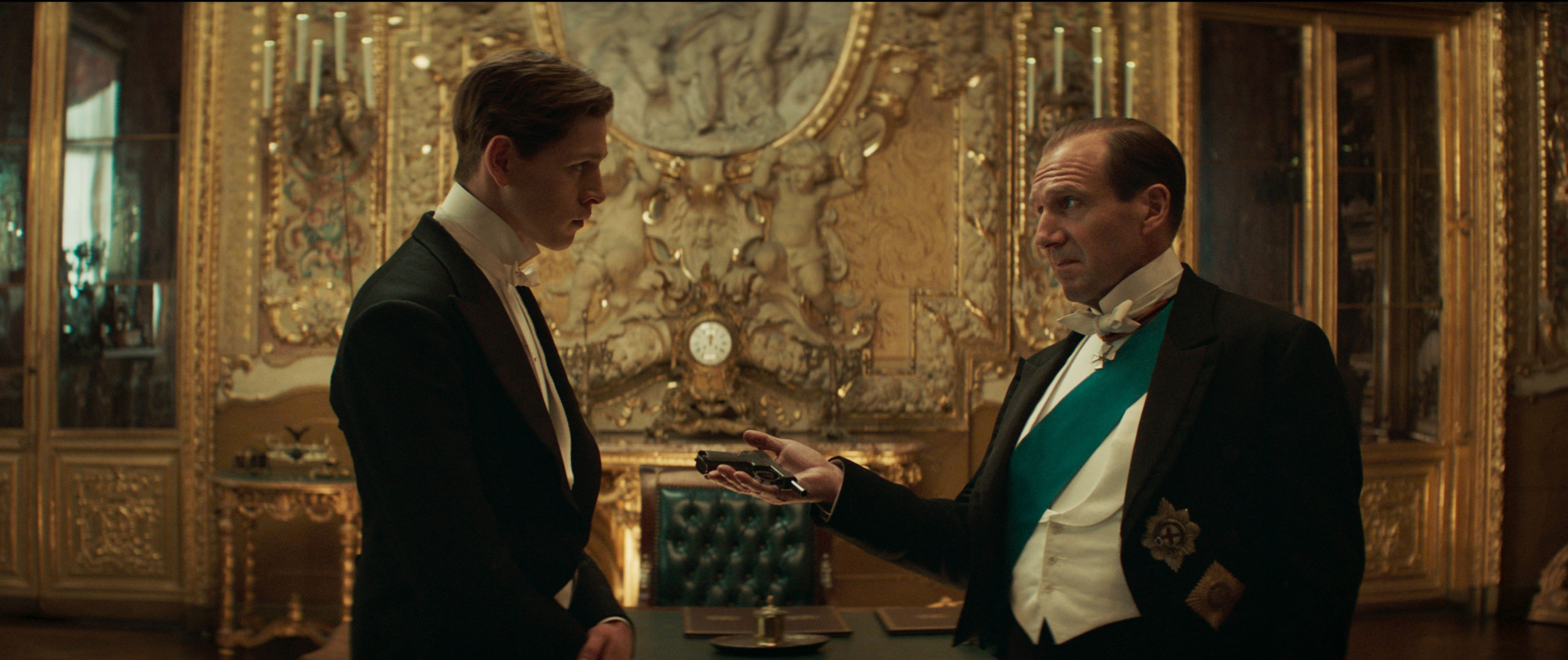Cast: Aditi Rao Hydari, Dev Mohan, Jayasurya
Director: Naranipuzha Shanavas
Spoiler Alert
The note that Sujata (Aditi Rao Hydari) passes to Sufi (Dev Mohan) in Naranipuzha Shanavas’ Sufiyum Sujatayum must be one of the briefest love letters ever written. The words, “I want to talk to you” bear a world of meaning, for she is a mute danseuse from an upper-caste Hindu family, and he, a wanderer who has submitted himself to Allah. In most of their scenes together, they are separated by a wall, the grills of a window or people oblivious to the wave of attraction that pulls them towards each other. The letter, thus, is an act of rebellion; her offer to breach the boundary.
Shanavas’ debut film, Karie (2015), is centred on a Dalit artiste who performs a ritualistic dance form where he embodies a deity. Off the stage, he is a disgruntled man, angered and crushed by the awareness that he, his art and the god he represents exist on the margin of the society plagued by casteism. In Sufiyum Sujatayum, Shanavas’s entry to mainstream cinema space, the communal forces come into play again, but the filmmaker replaces his rage with a subdued expression of grief.
The film has a non-linear structure, taking off from the end where Sufi quietly passes away in his twilight prayer and Sujata, now a married woman and a mother, wakes with a jolt in her plush apartment in a middle-east city. Their love story is revealed in a flashback, like a eulogy written in memory of something pure and beautiful. To expand on their affair that lasted just a few days or a week, Shanavas and his cinematographer Anu Moothedath use a generous dose of conventional affectations of romance. Sujata’s village exists in a timewarp, connected to the outside world only by occasional correspondences from Rajeev, Sujata’s wealthy fiance who lives in a Dubai highrise. At its centre is an archaic mosque where Sufi saints gather every year around Eid, to sing and dance. The sight of Sufi saints roaming the village’s lanes is a glossy hyperbole, like the interiors of the houses that look like they were taken out of the sets of a paint commercial. The lovers have a gorgeous wardrobe of red, ochre and green palette. On the graveyard beside the mosque, the lovers’ trysting spot, flowers and henna plants grow in abundance.
Is this exoticised portrayal of romance solid enough to convince the viewers that their relationship is meaningful and genuine? Probably not so much, especially when juxtaposed against the conventional relationship Sujata and her husband, Rajeev, share.
But love is, sometimes, about the mere aspect of presence—of being around the person you love, not about a promise for the future. In one of the best scenes in the film, Sujata sits next to a praying Sufi, in the house of their teacher, and shows him her henna-dyed hands, and his eyes turn profoundly sad. Without anything said or done, the scene expresses that familiar intense pain of being in love. This conciseness is one of the things that make Shanavas’ film an inspired work.
The film’s portrayal of Sujata is vexed. Its man-woman affair is on the lines of the many examples of ideal relationships found in religious textbooks, such as Radha/Meera and Krishna or Jesus and Mary Magdalene, between the individual soul and the God. Sujata’s love for Sufi “elevates” Sujata to the ranks of the sacred. Similar relationships could be found in Mazha (Lenin Rajendran, 2000), an adaptation of Kamala Das’ short story, and Charlie (Martin Prakkat, 2015), where women’s search for their male soulmate becomes a spiritual journey. Although, in Mazha, the audience gets a great sense of the woman’s journey as an individual. In Sufiyum Sujatayum, female characters are few. In the male-dominated space she lives in, Sujata becomes an animal to be tamed; a prize to be possessed.
In the post-marriage portion, Shanavas treats her like an orphaned child who is yet to warm up to her foster parents. Rajeev, who wedded Sujata without her wholehearted consent (in a letter, he states that he took her “silence” for consent), is treated with sympathies. He’s a patient man, of few words and gentle demeanour, who is disappointed that he can’t own his wife’s soul although he owns her body. When he’s informed of Sufi’s death, a near-invisible smile flashes on his face, for he knows what his wife needs is a closure. And the film lets him get what he wants.
Aditi Rao Hydari and Dev Mohan excel in roles that require them to underplay. Rao effortlessly evokes a mix of vulnerability and desirability on screen. The film has some wonderfully imagined sub-characters like Kumaran (Manikantan who is brilliant here), the village’s grave-digger and a confidante of Mallikarjunan (Siddique), Sujata’s father, who, incidentally, digs the grave of the youngster’s affair. Mallikarjunan isn’t a tyrannical father figure who uses physical violence to bring his rebelling daughter to her knees. He is a metaphor for the village itself—idyllic from the outside, free of communal shackles, but chained by deep-seated biases in the inside. Shanavas doesn’t reduce him into a caricature. Mallikarujunan’s conscience never stops telling him that he erred his daughter.
Recommended
It’s interesting how Shanavas plays with platonic and sensual. The lovers, in their first encounter, share the same seat on the bus. She playfully lets him stare at her bare shoulders. We see her feet a lot—she’s a dancer—and it’s the sight of him whirling on his foot that turns her completely smitten. In a love story where Allah is a cog in the wheel, this use of the body as an expression of desire is an impressive act of transgression.
The Sufiyum Sujatayum Review is a Silverscreen original article. It was not paid for or commissioned by anyone associated with the film. Silverscreenindia.com and its writers do not have any commercial relationship with movies that are reviewed on the site.



